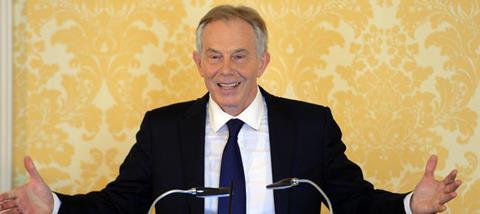
Like Alastair Campbell, the Chilcot Report doesn’t ‘do God’.
In its lengthy analysis of the Iraq War, it says nothing about the role that Tony Blair’s Christian faith may have played in his decision-making. That is perfectly correct. While Blair’s faith undoubtedly provided the moral framework for his whole political career, it never led him to make a decision that could not hypothetically have been made by a non-believer. The Iraq War is no exception to this.
Nonetheless, I’d argue that to understand why Blair did what he did, an understanding of his faith is important. Blair did not claim to have a ‘hotline to God’ and he is said to have been appalled at George W Bush’s claim in 2005 that God had told him to ‘go and end the tyranny in Iraq’. But Blair's actions as Prime Minister were shaped by a sense of responsibility which is inextricably bound up with his understanding of Christianity.
For Blair, there were two sides to Christian responsibility. The first is that Christianity, as a social faith, brings the believer into relation not only with God, but with his or her neighbours. Christians cannot detach themselves from the needs of those around them and must take responsibility for the well-being of others. They must say, as Blair did in biblical language in his 1995 Labour Party Conference Speech, ‘I am my brother’s keeper; I will not walk by on the other side’.
Blair did not claim to have a ‘hotline to God’
This aspect of responsibility underpinned a concept of community which Blair applied first to domestic policy and then to international affairs. His 1999 Chicago speech ‘Doctrine of the International Community’ set out five criteria which might, in an increasingly interdependent world, justify militarily intervention for humanitarian ends. As Chilcot would later note, the Chicago speech was an important step in the development of Blair’s foreign policy.
But there is a paradox here. Christian responsibility for others did not seem to extend to deciding with them what steps should be taken for their well-being. Blair, it seems, saw decision-making as something for which the individual Christian was directly answerable to God: the second aspect of responsibility. Thus, the only explicitly Christian reference in the Chicago speech is to the parable of the talents; those who had power would be responsible to God for their use of it.
Blair took this seriously, saying as early as April 2003 that he was prepared to answer to God for the deaths and injuries that had resulted from his decisions in Iraq. Chilcot is critical of the narrowness of the circles within which crucial decisions relating to the war were made but for Blair, the personal responsibility of decision-making could not be abdicated.
He has always emphasised his personal responsibility for his decisions in Iraq
Seven years before the Iraq War, at Easter 1996, Blair published a newspaper article which included reflections on the moral ambiguities of some of the key characters in the Passion story. He was intrigued by the degree to which Pilate had ‘tried to do the good thing rather than the bad’ only to be ‘caught on the horns of an age-old political dilemma...the struggle between what is right and what is expedient.’
He continued, ‘One can imagine him agonising, seeing that Jesus had done nothing wrong, and wishing to release him. Just as easily...one can imagine Pilate’s advisers telling him of the risks, warning him not to cause a riot or inflame Jewish opinion. It is a timeless parable of political life.’
Blair was suggesting that Pilate's fault lay in his failure to follow his own conscience rather than the advice of those around him. It may be an over-literal interpretation to suggest in the voices of those who opposed the war Blair, who believed that Saddam was a murderous and dangerous tyrant and that deposing him was the morally right decision to make, heard the counsels of Pilate’s advisers and the shouts of the crowd outside the Praetorium.
Blair has always emphasised his personal responsibility for his decisions in Iraq - most recently in his response to the publication of the report last Wednesday - and that sense of responsibility is as much Christian as political. Nevertheless, how Chilcot affects the belief many Christians, which Blair recognised in 2003, that ‘the last judgement will be against him’, will now be for each reader to decide.
Andrew Connell is a researcher and academic based in Cardiff. His interests include public policy, devolution, and the place of the church in public life. He tweets at @andrewpconnell




























